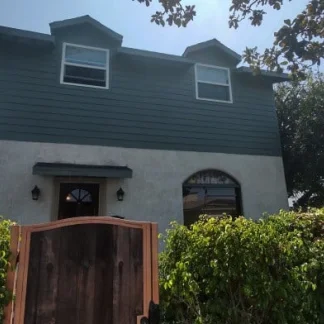Synergy Sober House
Synergy Sober House is a private rehab located in Los Angeles, California. Syner...
Gilmore House is a sober living facility located in Los Angeles, California that provides a supportive environment for adult men in recovery. While this sober living program does not provide treatment, residents benefit from a safe, drug-free and alcohol-free environment while they attend outpatient and aftercare services.
Sober housing provides a supportive substance-free environment for residents as they continue to progress in their recovery after being discharged from an inpatient alcohol or drug rehab. Gilmore House features inviting amenities in the large seven-bed, three-bath home that is equipped with comfortable furniture and a large HD TV. Clients are expected to adhere to house rules, consent to drug and alcohol screenings, participate in household chores, and regularly attend outpatient treatment and/or 12 Step meetings and recovery education.
Their aftercare services enable a complete continuum of care and may include transitional support for clients leaving the sober home, housing and employment assistance, and referrals for additional services.
Gilmore House accepts self-pay to cover the costs of housing, utilities, and food. The residents’ medical and mental health services related to substance abuse can be covered by major insurance providers such as Cigna, Anthem, and BlueCross BlueShield. For information about out-of-network benefits, please contact your insurance provider.
Contact us for more information: (310) 435-7370

Connect with Gilmore House by calling their admissions team directly.
(310) 435-7370 Website Get DirectionsLife skills trainings involve all the skills a person must have in order to function successfully in the world. These include time management, career guidance, money management, and effective communication. Truly successful addiction recovery is based on the ability to not only live substance-free, but to thrive. Life skills teaches the practical necessities of functioning in society, which sets clients up for success in life, and therefore sobriety.
Synergy Sober House is a private rehab located in Los Angeles, California. Syner...
Profound Treatment, located in Woodland Hills, California, offers medical detox ...
Sovereign Health provides mental health and substance abuse services for adults ...
American Private Physician Association is a private rehab located in Santa Monic...